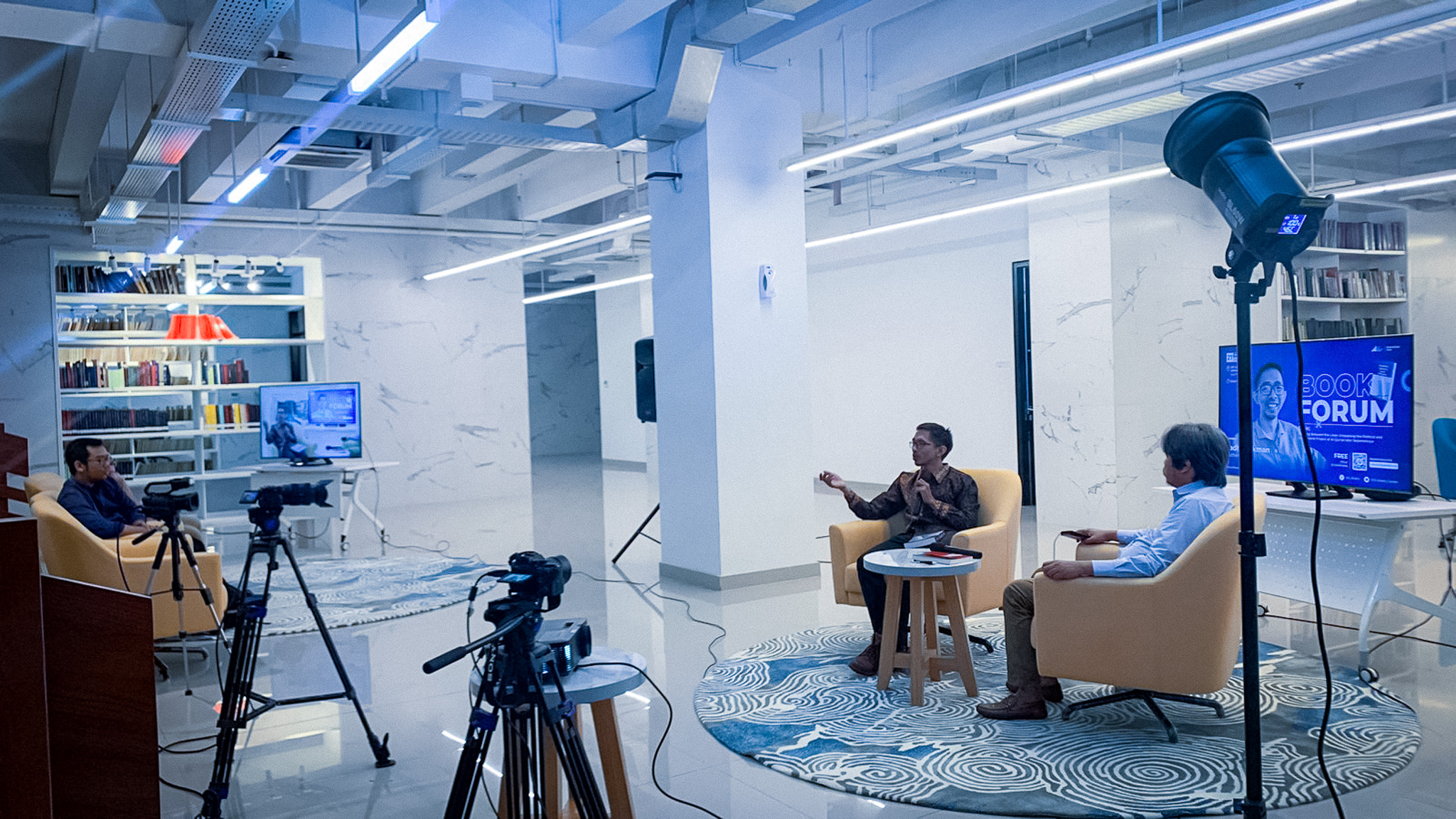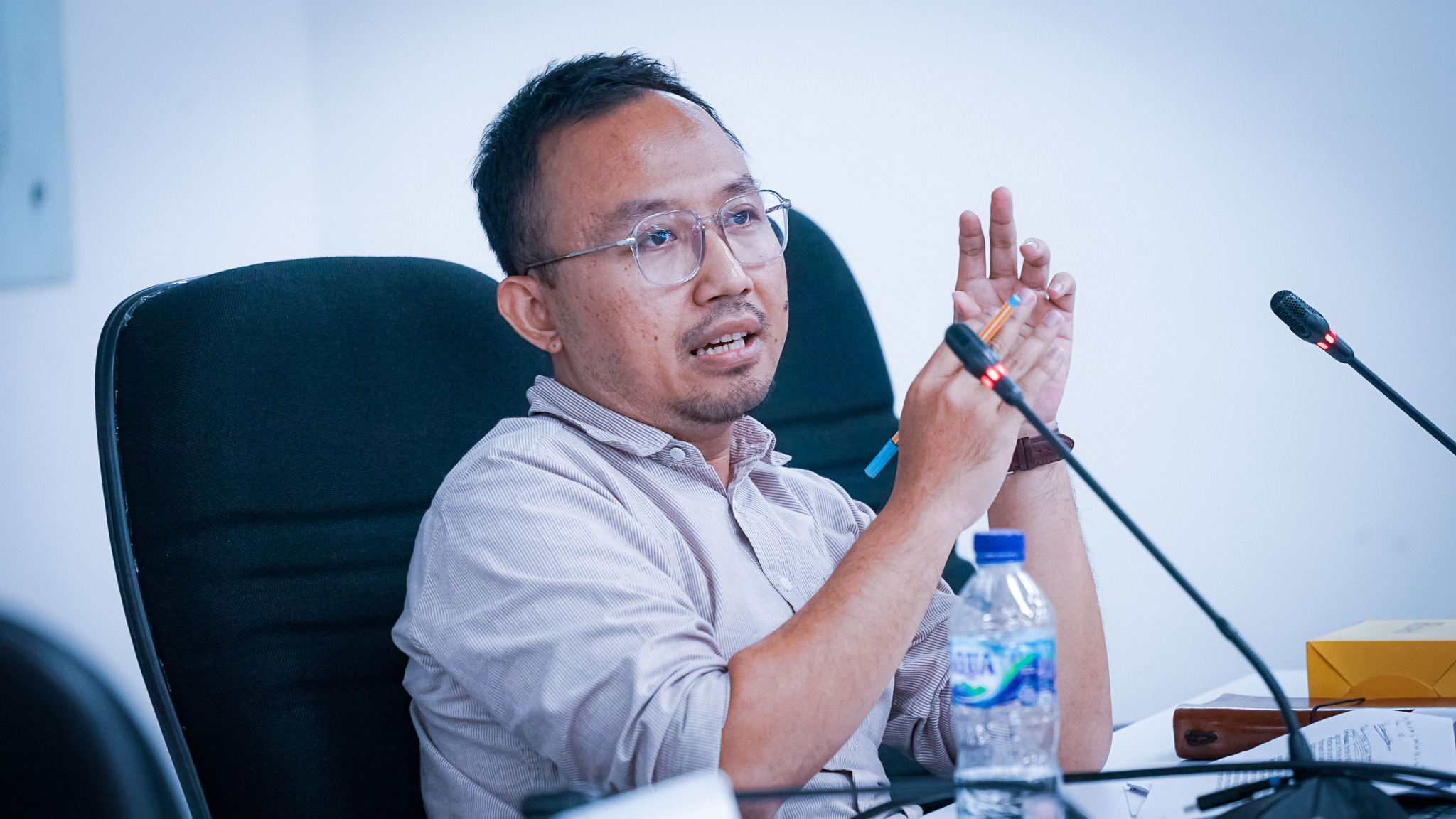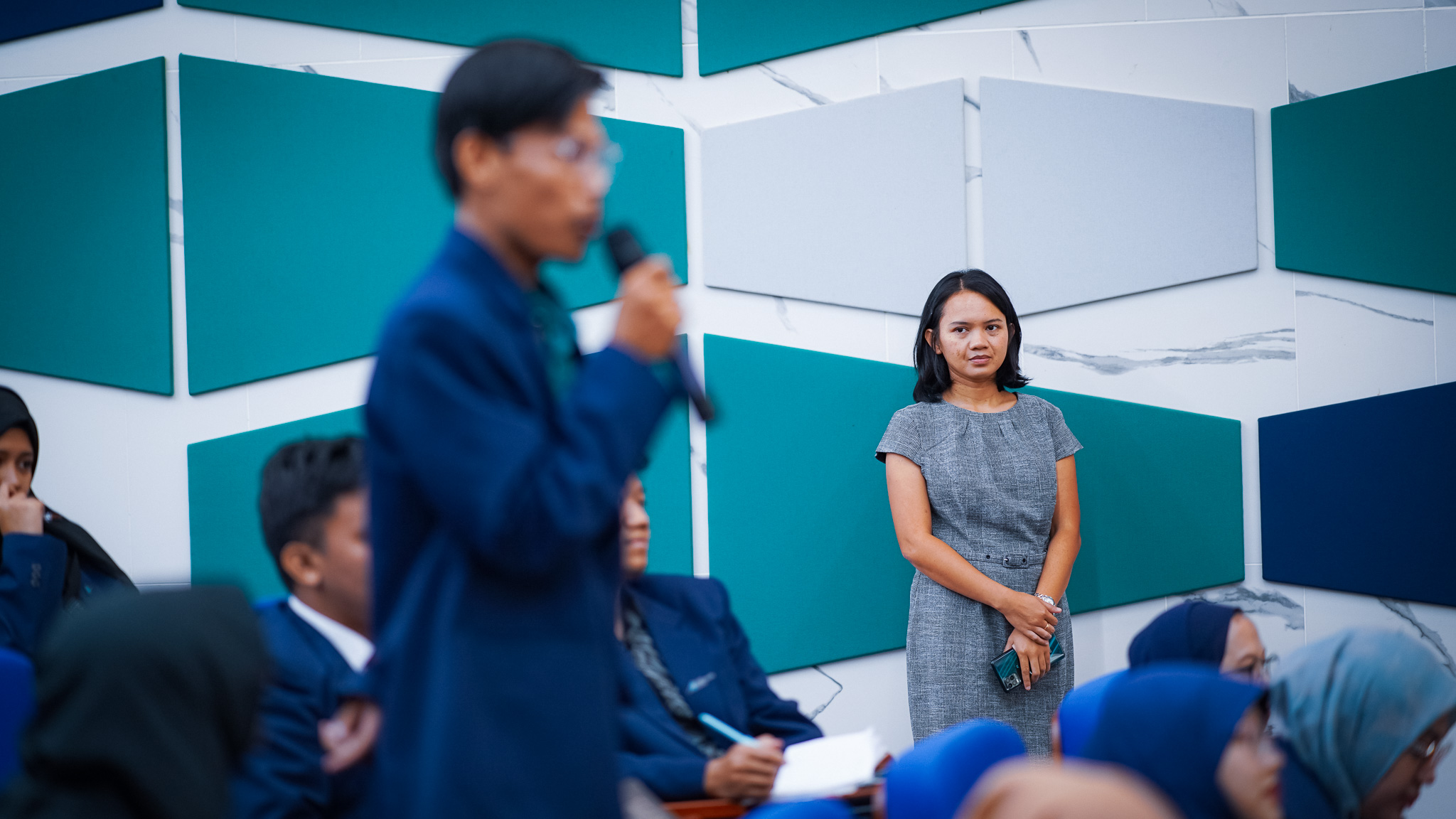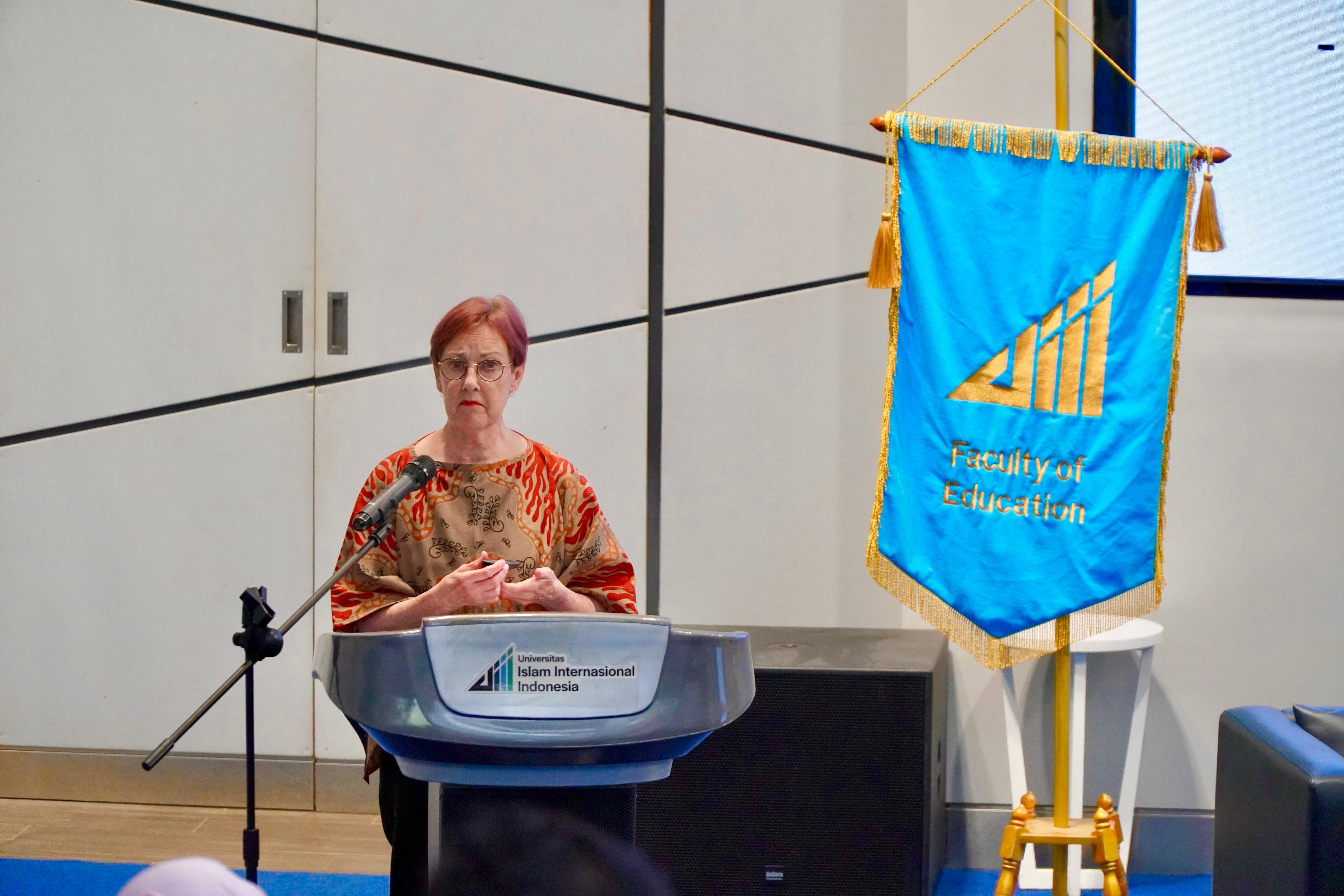UIII Hosts Talk on the Complexities of Translating the Qur'an in Indonesia
April 03, 2023Contributors: Maroof Ahmed & Fatima Zahra | Editor: Supriyono

The Universitas Islam Internasional Indonesia (UIII) hosted on March 27, 2023, an insightful talk on the political and institutional aspects of the official Qur’anic translation, inviting Dr. Fadhli Lukman, the author of "The Official Indonesian Qur'an Translation: The History and Politics of Al-Qur'an Dan Terjemahnya".
Dr. Lukman is a faculty member at the Department of Quranic Studies at Universitas Islam Negeri (UIN) Sunan Kalijaga Yogyakarta and works as an associate researcher at Laboratorium Studi Qur’an-Hadis (LSQH). He completed his Ph.D. at Albert-Ludwigs-Universität Freiburg in 2019, after obtaining his bachelor's and master's degrees in Quran and Tafsir studies at UIN Sunan Kalijaga.
Held at the UIII Library Center, the talk illuminated the complex dynamics in the official Indonesian Qur'an translation, demonstrating how religious texts intertwine with politics and the state while maintaining the sanctity of the original message.
During the event, Dr. Lukman emphasized that the nation-state had become an indispensable component of the structures and forces that shape Muslim Qur'anic exegesis today.
"It's an unprecedented history of modern tafsir, [which is] written not as a scholarly activity by individual scholars, but institutions. Hence, the work is credited to the institution rather than the individual," explained Dr. Lukman.
Delving further into the topic, the talk explored the role of government officials in commissioning Qur'an translations, noting that by doing so, they present themselves as supporters of the Muslim community in the country whilst also pursuing an agenda of establishing a standardized religious discourse of the state.
Specific to the Indonesian context, Dr. Lukman stated that the translation of the Qur'an contributes to maintaining the state's religious authority through the adoption of mainstream Sunni theology. The practical political significance of Qur'an translation for each ruling government is present, but still, the interpretive authority belongs to the ulama.
“Hence, any assumption that Quran translation is intended to create a standardized national Islamic discourse is an overstatement. Despite the fact that the translation is nominally produced by the Ministry of Religious Affairs, the ulama who make up the translation committee enjoy interpretive authority and are able to draw freely on traditional Sunni sources in making their translation decisions,” he explained.
In terms of the translation process, Dr. Lukman touched upon the hermeneutical and technical aspects. He said that "[The Quran translation] integrates genealogically to tafsir tradition and the translation of the composite texts. Tafsir serves as an intermediary text, or a companion source text, alongside the actual text of the Qur'an.”
The talk with Dr. Lukman is part of the Book Forum program, initiated by the UIII Library Center to increase the students’ interest in literacy and numeracy whilst also providing students with an opportunity to engage in critical thinking and analytical skills, which are crucial in their academic and professional development..
- Call for Papers 2025: FEB UIII Invites Researchers to Explore Muslim World Economy & Sustainability in OIC Countries
- Prof. Dr. Nasaruddin Umar: A Distinguished Profile in Religious Leadership
- Is Indonesia’s Middle Class Collapsing?
- Pedaling to Work, Dr. Lukman’s Message on ‘World Sustainable Transport Day’
- Welcoming the Pilgrim of Hope: Indonesian Muslim Leaders Embrace Pope Francis
- Sheikh Muhammad adh-Dhuwaini: A Recognized Authority in Sharia and Law
- Qurban and Grassroots Innovations Across Indonesia
- Indonesia's Green Qurban Movement
- UIII Productivity Ratio 2023
- Unsung Heroes in Global Trade: Celebrating International Customs Day 2024


